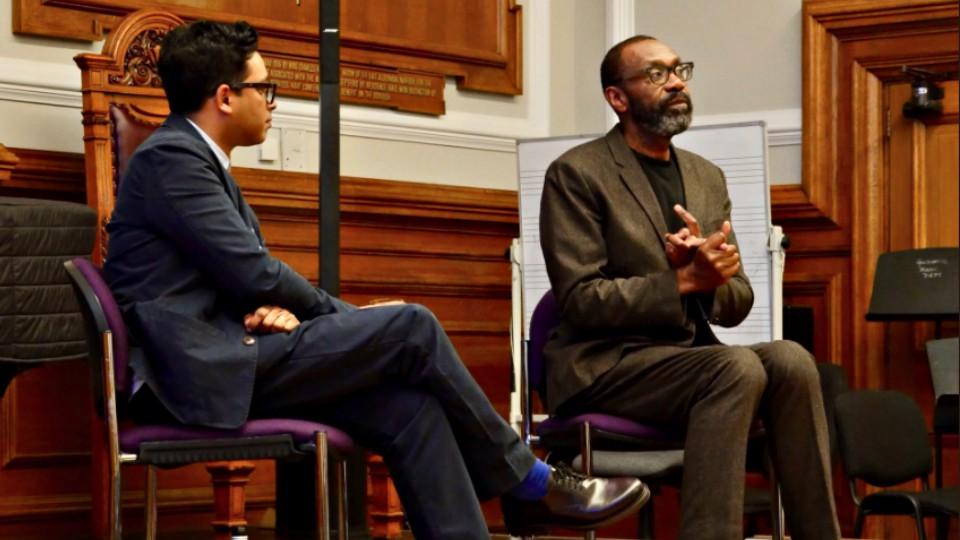Sir Lenny Henry: 'No jobs at the end' of diversity initiatives
Primary page content
Sir Lenny Henry has claimed diversity initiatives in the cultural industries don’t work ‘because there are no jobs at the end’.

Dr Anamik Saha with Sir Lenny Henry
Speaking at an event at Goldsmiths, University of London, the actor and comedian suggested ‘rather than more diversity initiatives, we need to ring-fence money for Black, Asian and Minority Ethnic (BAME) producers to really address the lack of representation in the national cultural output’.
Sir Lenny was speaking alongside Media & Communications Lecturer Dr Anamik Saha at the launch of the latter's new book, Race & The Cultural Industries, which investigates how political economic forces and legacies of empire shape cultural production and media discourses around race.
The event saw over 100 people fill the Council Chamber in Deptford Town Hall on 25 April to witness the pair discuss a range of topics including Dr Saha's book and Sir Lenny's experience of dealing with racial inequality in the cultural industries.
He went on to address his own entry into the media, his experience making programmes at the BBC and the potential for replacing the ‘soft’ language of diversity with a more radical language of ‘reparation’.
Dr Anamik Saha said: “Sir Lenny Henry is one of the most important figures in British media, and has used his influence to put issues of diversity and racial inequality in the cultural industries high on the agenda. To have him here to help launch my book was a great privilege. It was a wonderful night and I’m very grateful to him for giving up his time.
“While the issue of the politics of representation is complex, the fact remains that racial and ethnic minorities are marginalised across film, television, publishing, music and the arts. As a result, it is vital that mainstream discussions of inequalities in the media continue. My book focuses in particular on the challenges minorities face in the cultural industries, drawing attention to how they lack the same creative freedom as their white counterparts, which I hope will inform some of these discussions.”